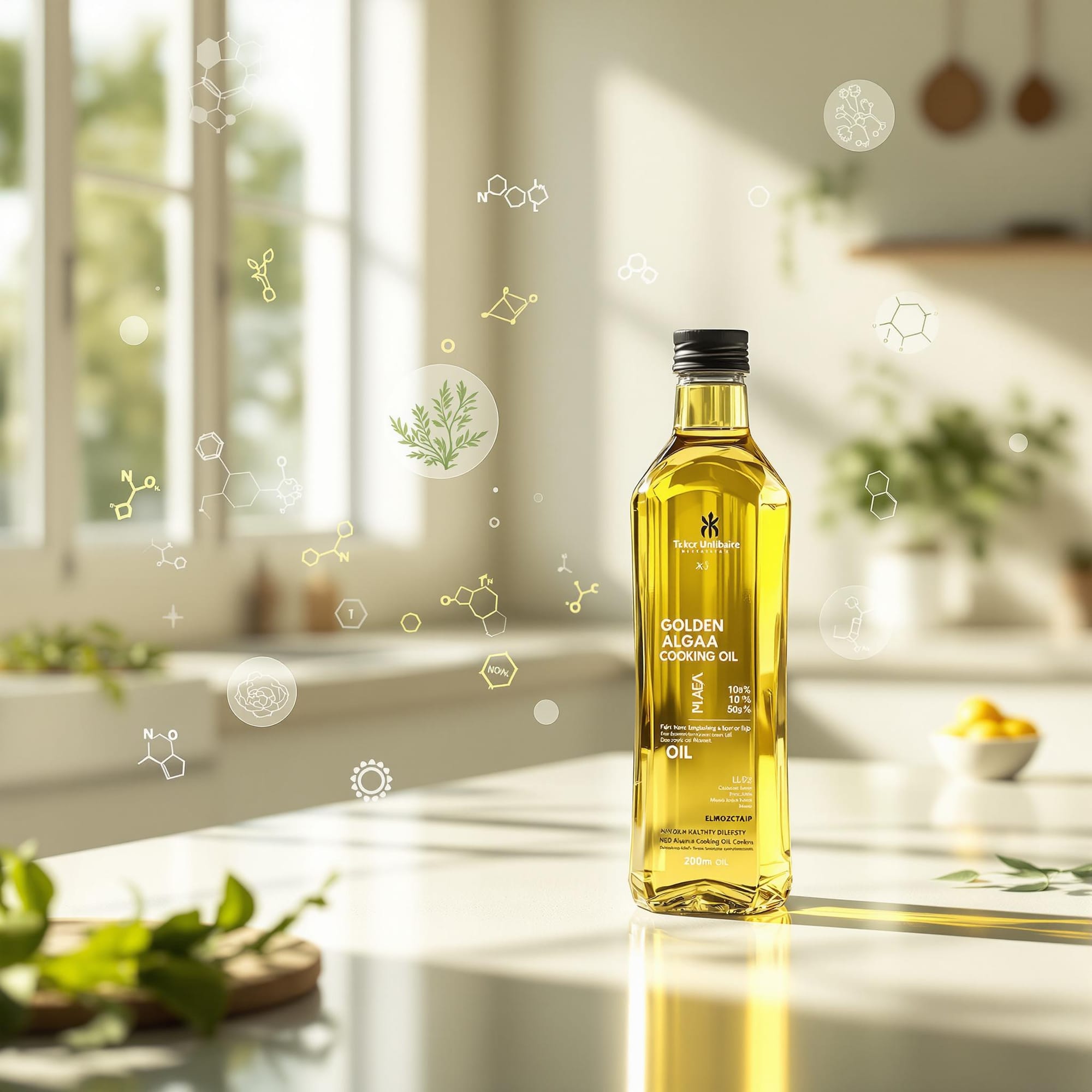Algae Cooking Oil Revolutionizes Healthy Cooking

As culinary trends evolve, the choice of cooking oil has taken a central role in modern diets, impacting both health and sustainability. Algae cooking oil has emerged as a game-changing option, heralding a new chapter in high-heat cooking. With its high smoke point and renowned nutritional benefits, this versatile oil is challenging conventional staples like avocado oil and high-oleic sunflower oil.
This blog post delves into what algae cooking oil is and explores its nutritional advantages, culinary performance, sustainability impact, and overall pros and cons. Ultimately, we'll help you determine whether this innovative oil is the right choice for your kitchen.
What Is Algae Cooking Oil? | Nutritional Benefits | Culinary Performance | Sustainability Impact | Pros and Cons | Which Oil Should You Choose?
What Is Algae Cooking Oil?
Derived from microalgae grown through fermentation rather than ocean harvesting, algae cooking oil presents a clean and neutral option for various culinary applications. Unlike traditional oils that rely on extensive agricultural practices, algae oil requires minimal land and water, making it an eco-friendly choice.
The oil’s composition boasts a light golden appearance and an almost flavorless profile with a subtle buttery note, making it ideal for high-heat cooking. As Chef-approved and environmentally conscious, algae cooking oil is quickly gaining attention in modern kitchens.
Nutritional Benefits
One of the key draws of algae oil is its impressive nutritional profile. Comprising approximately 93% monounsaturated fats (MUFA), algae oil stands out as a heart-healthy option. In contrast, high-oleic sunflower oil contains about 80% MUFA, while avocado oil comprises only around 70% MUFA.
"Algae cooking oil offers a balanced fat composition with remarkably low saturated fat content of about 4%, making it a more heart-friendly alternative."
Additionally, algae oil contains omega-3 fatty acids (EPA & DHA) beneficial for health, though it is important to note that these degrade at high cooking temperatures.
Culinary Performance
In cooking, stability under heat is paramount, especially for frying and searing. Algae oil excels in this area, exhibiting an exceptional smoke point of approximately 535–575°F (280–300°C).
Compared to other oils, it outperforms both avocado oil (520°F) and high-oleic sunflower oil (440–450°F). This makes algae oil highly suitable for various cooking methods without the risk of oxidation or flavor alteration.
Sustainability Impact
Consumers today are increasingly concerned about the environmental impact of their food choices. Algae oil distinguishes itself by using significantly less land and water, while emitting up to 50% less carbon dioxide compared to traditional oils.
"Opting for algae oil not only benefits your health but also provides a more sustainable alternative in the kitchen without compromising performance."
In comparison, high-oleic sunflower oil still requires agricultural land, and avocado oil carries the heaviest environmental footprint due to its substantial water usage.
Pros and Cons
When evaluating algae cooking oil, consider its notable advantages. It offers:
- Exceptional high-heat stability
- Versatility due to its near flavorlessness
- A high concentration of heart-healthy MUFA
- A low environmental impact
However, some drawbacks exist, including:
- A premium price range, averaging between $20–25 per 16oz bottle
- Limited availability at mainstream grocery stores
- Lost omega-3 benefits during cooking
Which Oil Should You Choose?
Choosing the right oil largely depends on your cooking needs:
- For high-heat frying and neutral cooking: Algae oil stands out for its exceptional stability.
- For budget-friendly everyday cooking: High-oleic sunflower oil is a delightful alternative.
- For nutrient-dense flavor in salads or light sautéing: Avocado oil is recommended.
Algae cooking oil represents the future of culinary oils, merging health benefits, sustainability, and culinary performance. Although its cost currently exceeds traditional oils, its superior stability and eco-credentials make it a smart investment for chefs and health-conscious individuals alike.
